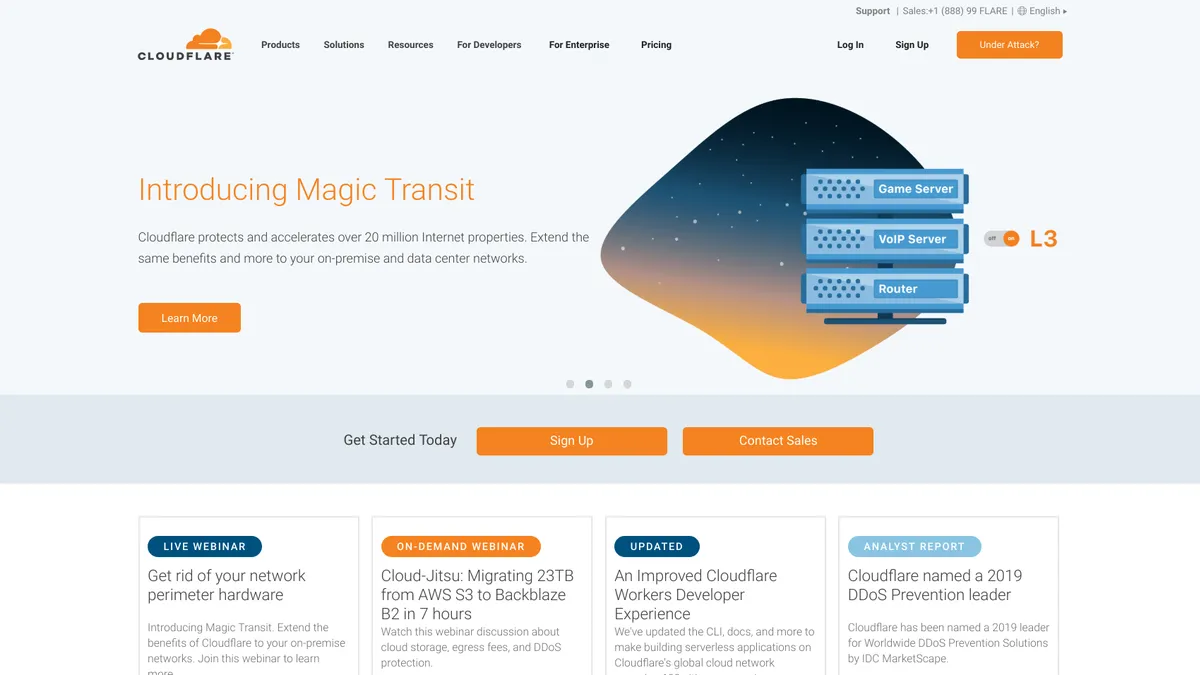Dive Brief:
- Network delivery service provider Cloudflare filed its S-1 Thursday, beginning the trials of an initial public offering.
- The company has maintained "rapid growth," upping revenue almost 43%, from $134.9 million at the end of 2017 to $192.7 million in 2018, according to the filing. Customers' commitments to other vendors, fear of migration costs, or comfort with on-premise solutions could threaten Cloudflare's ability to pick up new customers.
- Cloudflare experienced a net loss of $87.2 million in the year ending December 31, 2018, preceded by $10.7 million in 2017, according to the filing. The company warns investors operating expenses will continue to increase.
Dive Insight:
The first look inside a company's financials lays bare not only its strengths for investors to see, but also its weaknesses.
Cloudflare sits in a saturated market, up against on-premise network vendors including Cisco and FireEye, and public cloud providers such as Amazon Web Services or Google. The large infrastructures of its competitors hold Cloudflare at a disadvantage.
"Additionally, if an increasing portion of web content is housed on another company's platform or portions of the internet are otherwise privatized," demand for Cloudflare's product could decrease, according to the filing.
Cloudflare's performance in the market depends on its products' reliability. The company and its customers experienced two outages in June and July, significant enough for the company to add them to its risk factors in the filing.
It's "virtually impossible" for the company to entirely mitigate security risks from malicious activity, according to the filing. Non-malicious risks are just as prevalent.
In June a "route leak" from Verizon resulted in service disruption for Cloudflare customers. The company, while not responsible for the loss of service, had to deal with the potential ramifications of the outage, like customers' "diminish[ed] confidence" in its products.
In July, the company had a bad software deployment to its web application firewall, resulting in a CPU spike and an outage. Because of the constant updates and "fundamental enhancements" of its products, Cloudflare says future errors may occur.
Despite the disruptions, the company doesn't expect any financial ramifications. However, Cloudflare acknowledges its quality assurance procedures may not catch a defect "in a timely manner," according to the filing.













